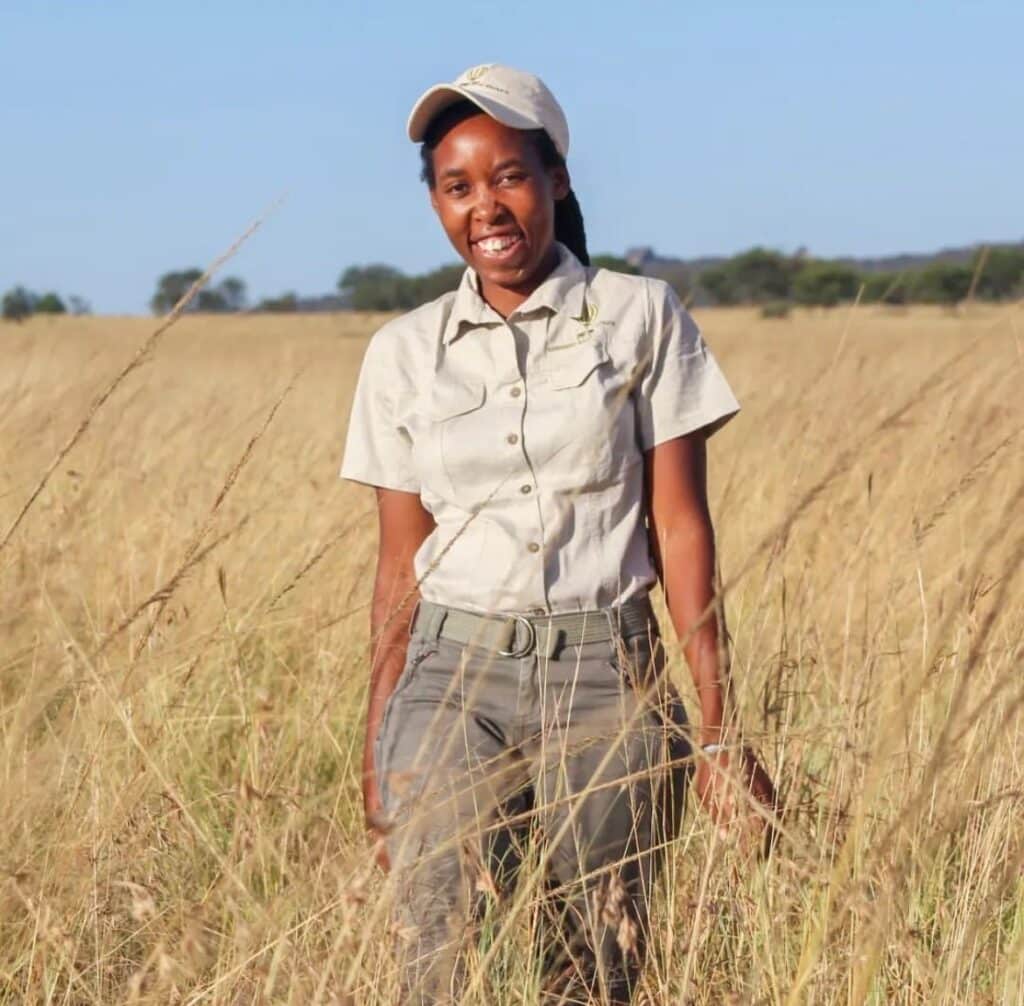International filmmaking opportunities
This led to a spate of contracts from companies all over the world, including the US, Italy, Spain, Uganda, Kenya, Australia, Rwanda and Denmark, who wanted to capture the beauty and uniqueness of African nature through her eyes in places like Kruger National park in South Africa, and many more.
This year, she successfully secured a training opportunity on location in a camera assistant role, supported by Project Songbird with BBC Studios Natural History Unit, who were filming a series in Mara, Kenya and Uganda for National Geographic’s ambitious new series ‘HOME’.
“Apart from the obvious enjoyment of observing these amazing animals, what was really special about this time was working with a talented cinematographer and all the amazing BBC Studios crew. In assisting them on set, I learned so much about how these shots are composed and how the story unfolds. It’s something I’ll treasure forever.”
(The training was funded as part of Project Songbird – the BBC Studios Natural History Unit’s £1m initiative to nurture, diversify and support new production talent in countries where the world-renowned unit frequently films, in order to help create a more equitable industry).
As part of her role on location, Lilian assisted with DIT, ensuring the footage was properly offloaded to be sent back to the UK for editing. “That part is quite scary because if you mess up, months of work could be jeopardized. Thankfully, it all went to plan, and I received great mentoring and support to make sure the job was done well.”
Setting African creatives up for success
Lilian’s future in the field looks bright, but it’s not lost on her that she’s had to seek outside support to make it happen. “Education, infrastructure, society – none of it is set up to make a Tanzanian female in this field succeed.
“They say you can’t be what you can’t see and it’s true. If you only see men or people from abroad doing this job, you might not realize this is something you can do. This is a barrier that young women in Tanzania are facing.”
Her photography and films – her success – is something she hopes will inspire more Tanzanian women to take up the mantle.
“I want to see more of us in the field. We need more Africans, more Tanzanians, more women, telling our stories internationally. We should be the ambassadors for our environment, for the natural beauty we have here. We have a light that shines brightly and it’s time we shone it outwards for the world to see.”
Wildscreen Festival Tanzania takes place from 6 – 7 June in Arusha, Tanzania. Find out more and buy tickets online here.





